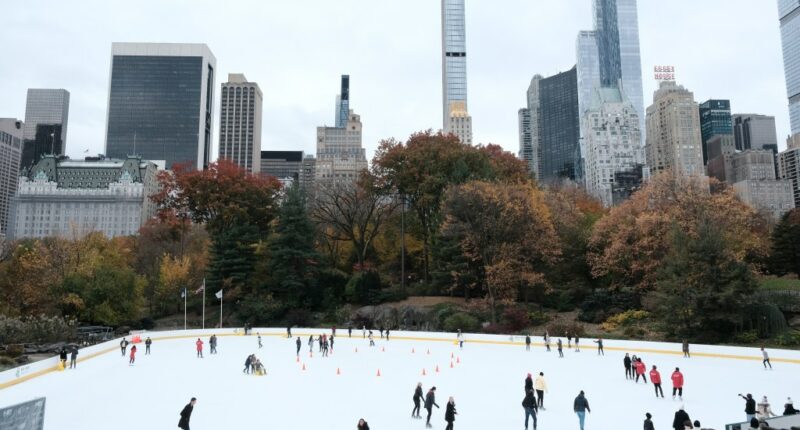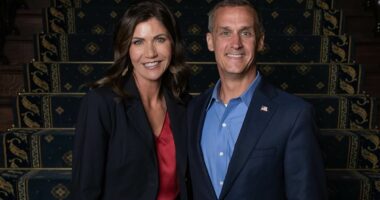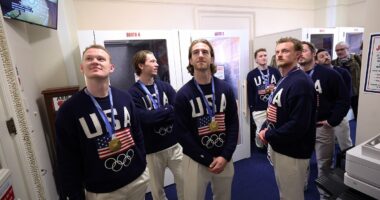Share this @internewscast.com

Wollman Rink has been a renowned location in Central Park for many years, with the stunning Manhattan skyline rising above the treetops as skaters enjoy the ice rink.
However, for years, Wollman has been run by profit-driven businesses whose primary goal is to generate revenue. While the city earns some fees, these businesses make significant profits and capitalize on substantial branding opportunities.
Currently, Wollman Rink faces a pivotal decision: its management contract is up for renewal for 20 years, sparking the debate: Should the city allow a private developer to take over again? Or should the famous site be reimagined and enhanced, managed as a nonprofit to prioritize public interest over profit?
Regrettably, the Adams administration appears to favor the corporate path, planning to transfer Wollman to a private group led by the Related Companies, a global real estate developer. This proposal will be reviewed by the city’s Franchise and Concession Review Committee this week. The contract extends over 20 years, ensuring private control for a lengthy period.
There is a better way.
Last year, prior to the bidding process, the Central Park Conservancy proposed investing $120 million of private funds to rejuvenate the entire southeast section of Central Park, including Wollman. This offer, likely one of the largest private donations ever presented to the city, was turned down.
On the other hand, Related has pledged only $10.9 million in improvements—less than one-tenth of the Conservancy’s proposal. The agreement also requires Related to pay between $3.4 million and $5.9 million yearly for concession rights, while it stands to earn significantly more in profits from the park.
Our plan would finally fix disability access in and around Wollman, repair failing stormwater infrastructure, dredge and restore the nearby Pond, and ensure Wollman is integrated into the park’s natural setting rather than looming over it.
Under our plan, the city would also be asked to make a modest but necessary capital commitment in the neighborhood of $30 million (it is, after all, public property) which would unlock the raised funds, a formula that has been spectacularly successful for the Conservancy for decades.
We are not alone in thinking that running Wollman on a nonprofit basis would be better. Recently, Council Member Gale Brewer, joined by 18 of her fellow elected officials, wrote to Mayor Adams urging him to negotiate directly with the Conservancy and not go the private route.
If anyone doubts the Conservancy’s ability to deliver, they need only look uptown to the park’s north end. There, on the site of the old Lasker Rink, the Conservancy just completed one of the most complex projects in the park’s history: the new Davis Center.
The old Lasker was falling apart — leaking, crumbling, blocking natural streams, and standing as a hulking eyesore at the edge of the Ravine. In its place, the Conservancy created a stunning new facility that serves as a pool in the summer and a skating rink in the winter, seamlessly integrated into the surrounding landscape.
As the Daily News Editorial Board wrote earlier this year, “The best proof of the Conservancy’s ability to bring in a rebuilt and renewed Wollman on schedule and on budget is at the park’s northern end.”
For decades, private operators of Wollman Rink have charged sky-high prices: $38 to skate, $120 an hour for pickleball. That is not the spirit of Central Park, a place meant to be free and democratic.
We’d keep prices affordable. We’d offer free and low-cost programming to schools and community groups. We’d open more bathrooms and a bigger restaurant to the public, not just paying customers. And we’d reinvest every dollar earned back into the park.
Some have suggested that the Conservancy should have entered the competitive bid process against the likes of Related and the Trump Organization, which also bid on the project. But it makes no sense to bid to give a gift. We are a nonprofit that has stewarded the park for decades, in partnership with the city. Asking us to compete against major multi-national corporations is not fair and not how partners should treat each other.
City Hall can still hit the brakes on this deal and leave it to the next mayor to compare all offers in the full light of day. Doing so could ensure Wollman Rink remains what it was always meant to be: a public good, not a private cash register.
Smith is president and CEO of the Central Park Conservancy.

















